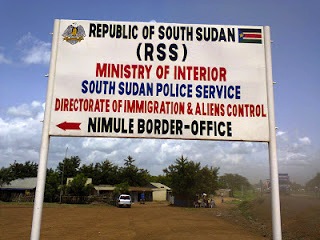S. Sudan: UK funds project to boost economic diversification
February 4, 2013 (JUBA) – South Sudan has launched a customs development and trade facilitation programme at its Nimule border, seeking to help the country diversify its economy away from oil revenues.

South Sudan’s economy remains heavily dependent on oil revenues, with other resources in the country yet to be fully tapped.
However, officials say a significant rise in revenue has been realised since work to develop South Sudan’s customs service began in 2011.
“Between July 2011 and July 2012, customs revenue increased by over 1600%,” the UK embassy in Juba said in a statement.
“This work comes at a critical time, with government focusing on diversifying income away from oil revenues,” it added.
South Sudan shut down its oil production in January last year, after a dispute with neighbouring Sudan over transit fees. Prior to the shutdown, oil revenues accounted for 98% of South Sudan’s budget.
It is widely believed that the new project will not only lead to the development of customs systems at South Sudanese border locations, but also further reduce irregularities and boost trade and investments.
Deng Ajak Bol, a clearing agent in Nimule, said such an initiative would also enhance South Sudan’s trade relations with neighbouring communities, who usually experience problems at border points.
“With such a system in place, I am sure the irregularities and complaints [of] traders from other countries experienced at our borders will be minimised,” Bol told Sudan Tribune by phone on Monday.
As part of the programme, both the private sector and civil society organisations will be able to positively influence trade policies, customs reform and trade facilitation, as well as the development of a trade integration strategy, the statement said.
An estimated £7 million (about $11 million) has been earmarked for the project over a three-year period.
(ST)
